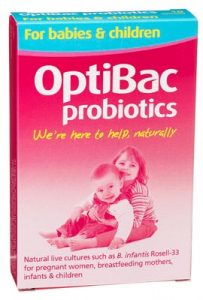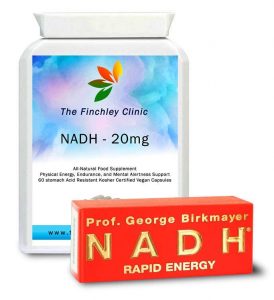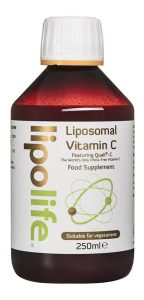Do you know how to keep up your energy levels? A sensible, balanced diet with good nutrients; enough sleep and rest; as well as a decent amount of exercise, right? Absolutely. But there’s one critical component missing off that list – a healthy and well-functioning thyroid.
The thyroid is a gland located in the neck and, essentially, concerns itself with leading the human body’s endocrine system – a group of glands, all of which produce hormones that regulate the body’s metabolism and ensure it operates properly. The thyroid, itself then, produces two specific hormones (T3 and T4) that help keep a person’s energy levels where they should be. However, as with any part of the body, the thyroid isn’t in the habit of turning down a helping hand; so how can you support your thyroid in doing its essential work?
Try to avoid fluoride-featuring water
The trouble comes with so-called endocrine disruptors; chemicals and substances that we encounter in everyday life thanks to the environments of the modern world. It’s almost impossible to avoid all harmful things in our environment as we live daily life, but when it comes to endocrine disruptors, there are a few things you can do to tip the scales in your favour.
The chemical element fluoride is, nowadays, recognised as an endocrine disruptor because it affects normal endocrine function – and, frankly, that’s hardly surprising, considering it was once regularly prescribed for sufferers of an overactive thyroid. It’s believed to take no more than 2-5 mg of fluoride each day, over several weeks, to reduce thyroid function – that’s definitely within the range of fluoride content of many drinking water supplies. In which case, opting to drink fluoride-free water instead may lower your chances of suffering from an underactive thyroid by up to 30 percent.
Try to live without gluten
Don’t doubt it, a gluten-rich diet isn’t welcomed by your thyroid. The trouble is gluten comes complete with gliadin, a protein that the immune system considers is invasive (since gliadin doesn’t occur naturally in the body). So, for those with a gluten intolerance, the immune system’s antibodies end up honing in on gliadin… or, at least, they think they are. What they’re really going after, though, is an enzyme called transglutaminase that they mistake for gliadin; an enzyme that’s in high volume in the thyroid – and this means the antibodies effectively end up attacking the thyroid! Bad news, indeed. Even more reason, then, for those with a gluten intolerance to avoid gluten.
Try to enrich your diet with great nutrients
Like your body, in general, your thyroid needs to be fed – and that means consuming enough of exactly the nutrients in needs; namely the chemical elements iodine and selenium. Why? Well, in order for this gland to produce T3 and T4, it requires iodine. Therefore, making sure your diet’s rich in iodine – or boosting your body’s levels of that element via an iodine-featuring supplement – is a must.
For its part, selenium is essential for effective operation of several processes in the human body (cellular repair, DNA synthesis and reproduction, to name just three), but of all areas of the body, it’s in the thyroid where this trace element is most concentrated – so it can carry out its critical job in metabolism and hormone synthesis. Many people get the selenium they need from food sources. So, what foods to look to for topping up your selenium levels? Well, specific breads, Brazil nuts, grains and spinach are all good options.
The Thyroid Health Kit
And yet, too much of the time, some will struggle to enrich their diet with foods (including non-gluten options and, ideally, non-fluoride water) to get the nutrients and exclude the endocrine disruptors necessary to keep their thyroid happy and healthy. What this calls for then is well-reviewed, naturally-derived, thyroid health supplements – and, as far as we’re concerned, that means the Thyroid Health Kit; available through us at The Finchley Clinic.
Convenient, easy-to-use, and affordable, the Thyroid Health Kit comes complete with:
- B12 Tri-blend – a mixture of the three most bioactive forms of Vitamin B12 (sufferers of an underactive thyroid are often deficient in this vitamin)
- Selenium – in addition to its need for producing of T3 and T4, selenium is required to help produce antioxidant enzymes to protect the thyroid
- Detoxadine – an organic, deep-earth sourced nascent iodine that nourishes the thyroid and encourages normal hormone balance.
To sum up, the Thyroid Health Kit should help you to:
- Remain energised – good energy means your thyroid isn’t sluggish and so works just as it should, balancing your body’s energy levels
- Sleep well – poor energy means your sleep cycles can become irregular, so you don’t wake up rested and ready for the day ahead
- Stay focused and concentrate – an unhealthy thyroid can coincide with suffering from brain fog; aiding your thyroid health should help you to keep focused
- Keep your metabolism on track – the thyroid’s hormones are responsible for regulating your metabolism and, therefore, your metabolic output; nobody can really expect to function properly in day-to-day life without a reliable and efficient metabolism.

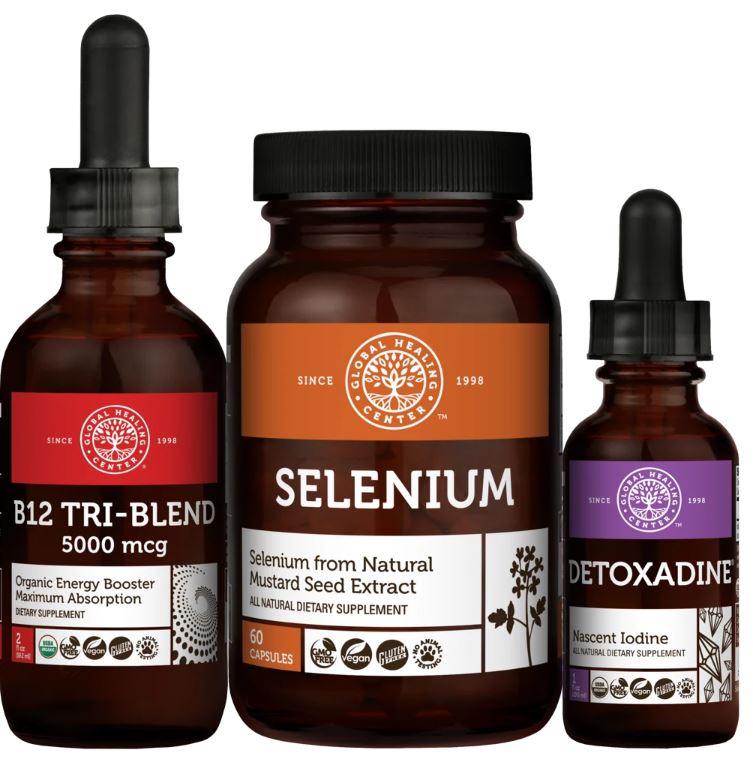
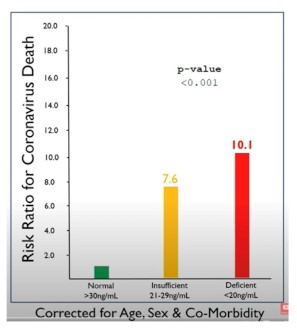 Here I want to acknowledge the wonderful Vlogger Ivor Cummins and refer people to his YouTube video found
Here I want to acknowledge the wonderful Vlogger Ivor Cummins and refer people to his YouTube video found  Be well!
Be well!